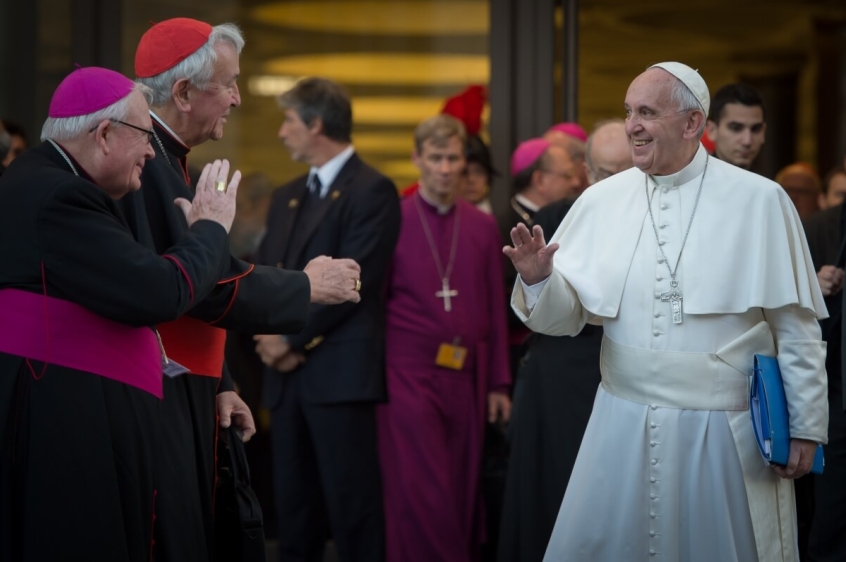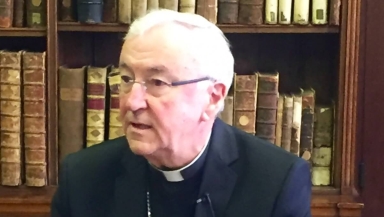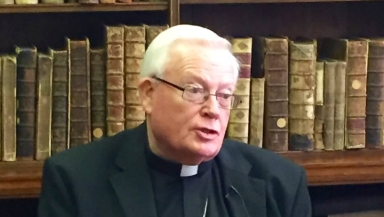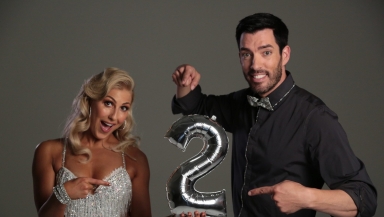The Pope is expected to follow-up the three-week Synod on the Family with an exhortation on "the joy of the family".
The 270 archbishops and cardinals who gathered this month in Rome are likely to be summoned to future synods where they could address issues such as the sacraments, and possibly even sexuality.

Archbishop of Westminster Vincent Nichols and Bishop of Northampton Peter Doyle, representing the Catholic bishops of England and Wales in Rome, revealed today that in spite of the differences of opinion over issues such as marriage and divorce, the Pope remained positive. Back in England, they revealed that when one session finished unexpectedly early, they were greeted by the Pope emerging from the Synod hall at the Vatican. Giving them a cheery wave, Pope Francis said: "Oh look, the journalists aren't here! They thought we were coming out at 7pm. This is a bit of a relief!"

The Pope will seek advice on the title and content of this and future synods from the influential Council of the Synod Secretariat. Each bishops' conference around the world is being asked to debate and suggest three topics for the next synod.
Archbishop Nichols, who during his three weeks in Rome was elected to the council, said: "We are looking for a path of pastoral and missionary conversion because we cannot leave things as they are."
He said the Pope would write what he liked in the post-synod document, and predicted it could follow the theme of joy set by his previous encyclical, The Joy of the Gospel. The exhortation will set out a vision of why the gospel of Jesus and Christ's vision of family is "good news" for people and families today.
Different parties have portrayed the synod as a victory both for the conservative and the liberal wings of the Catholic Church. Cardinal Nichols, speaking at Archbishop's House, Westminster, said: "The synod saw itself as offering real solid, strong support for marriage based on a partnership of a man and a woman, and for family life, as key institutions in the world today."
There simply was not time to reach firm conclusions on issues such as homosexuality, or to resolve the conflicts over whether those who remarried after divorce could be admitted to Holy Communion, a debate which was primarily about theology of the sacraments.
Cardinal Nichols said: "This synod helped us to develop and have a bit of freshness about the way we think of the family." He added: "I think this synod has set a pathway for the Church. It is a pathway on which we are going to have to find new ways of accompanying families and individuals through every phase of their lives."

Bishop Doyle said he had never run a marathon but felt as though he had done one in Rome.
"I feel exhausted mentally and physically. We come from tired-out Northern Europe. Being with all those bishops and the different cultures and insights brought to bear on marriage and the family lifted me up, affirmed me in terms of supporting marriage as we know it between a man and a woman."
He said marriage in the West had become privatised. The UK's imigrant community can challenge this. "What the immigrant community can bring here is that marriage is about more than Jack and Jill… there is much more life and colour and joy in their celebrations than there can be in ours. We are a bit dead really, aren't we, in our own celebrations of things."

He also apologised that the Synod had not had time to deal with the issue of homosexuality. "I'm very sorry for the LGBT good people who were looking to the synod for something. It was really hard for people of same sex attraction. It wasn't blocked. There was just so much to deal with."
At the Synod, there were 328 interventions by synod fathers, 17 by couples, and 16 by single people. The bishops and archbishops sat for 54 hours in plenary sessions and 36 hours in discussion groups.
Bishop Doyle said: "It was amazing how he [the Pope] listened. He listened in an absolutely dead-pan way but he was listening. He was like one of my Jesuit teachers at seminary who used to look over his glasses to check us out as we were talking."
Irene Mitchell of the Union of Catholic Mothers said the synod had helped the church move forward. "The synod has talked about the love of the family," she said. "It has shown a real understanding of the difficulties families face and has supported the family, and how to care for all members of the family, including those who are homosexual and divorced."













